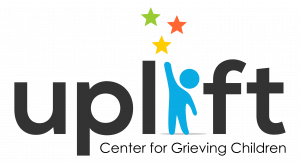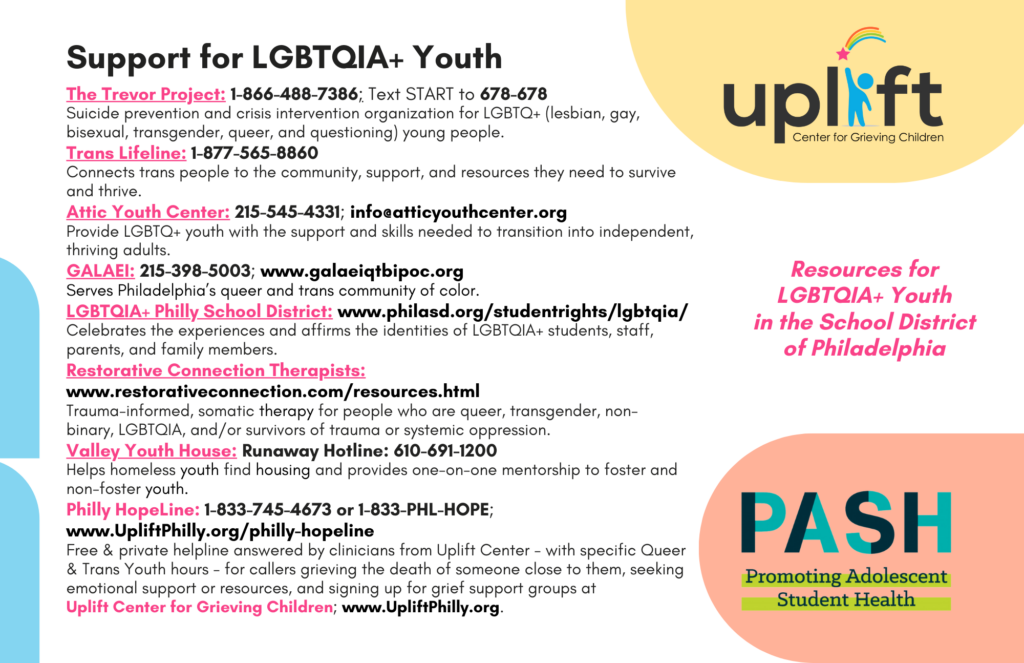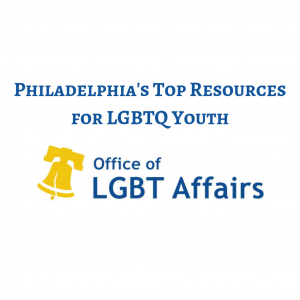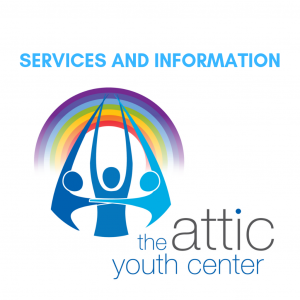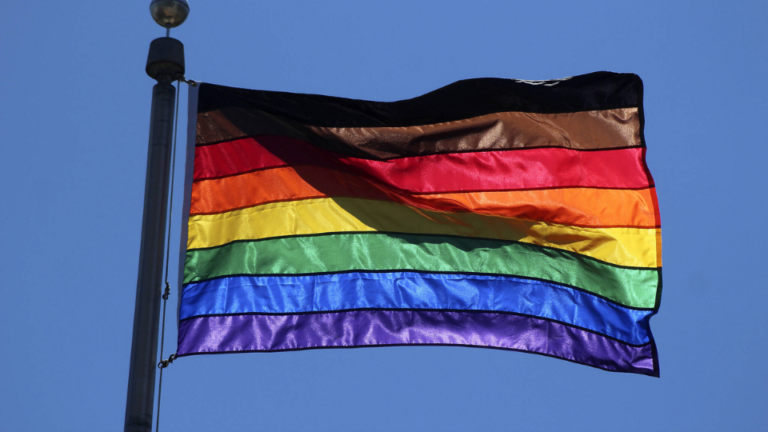
Uplift’s Queer & Trans Youth Services program provides education, support, and resources for youth, young adults, organizations and families throughout the City of Philadelphia. Queer & Trans Youth Services offers space for individual and community grief, and ambiguous loss experiences. This program strives to generate conversations about Queer & Trans history and how that history is tied to our grief.
Grief can look different for LGBTQ+ people. In addition to grieving deaths, queer and trans people often experience ambiguous loss, collective grief, disenfranchised grief, and the loss of missed opportunities and milestones. Learn about these non-death losses in this tip sheet.
LGBTQ+ youth often feel isolated or lonely after the death of a significant person. Maybe the deceased loved one fully accepted the child’s orientation or gender identity, or died before the child could share those facets. Even the death of a significant person who didn’t accept a child’s identities can impact their grief journey. This video includes advice to guide caregivers supporting a grieving LGBTQ+ child who may be in one of these scenarios. Download the accompanying tip sheet to keep or share as a resource.
If you are LGBTQIA+ and are in a crisis situation in which you need emergency counseling or support services, calling a specialized hotline can help. The Trevor Project and the Trans Lifeline are two national hotlines that offer free, confidential anonymous counseling services to LGBTQIA+ youth.
Download this tip sheet for an overview of both hotlines, with comparisons on services offered and operator capabilities.
For transgender and gender nonconforming youth, the use of chosen names and pronouns is validating as well as lifesaving. This tip sheet includes a guide to pronouns and gender identities and tips for avoiding misgendering and deadnaming (using an incorrect name for a trans person). It also includes practical tips for supporting trans people.
TSER created the Gender Unicorn in 2014 to describe the spectrums of gender and sexuality.
Philadelphia’s Office of LGBT Affairs curated list of Philadelphia’s top resources for LGBT+ Youth.
Key concepts that can better help you support and advocate for transgender and gender non-conforming students developed by the Bryson Institute program of the Attic Youth Center.
A glossary of key terms and their meanings for/within the LGBT+ community. Developed by the Bryson Institute program of the Attic Youth Center.
Policy 252 information. The purpose of this policy is to ensure safety, equity, and justice for all students
regardless of gender identity or gender expression so that they can reach their fullest
human and intellectual potential.
Overview of the Attic Youth Center‘s mission, programs, and services available to LGBT+ youth.
